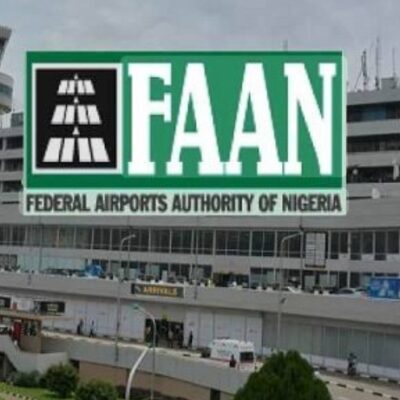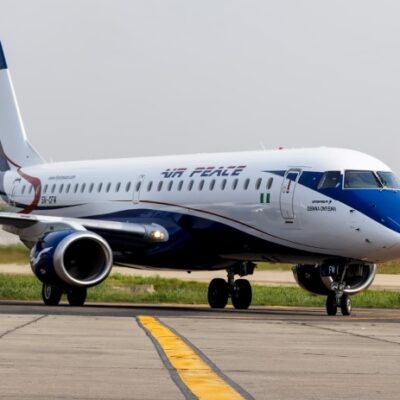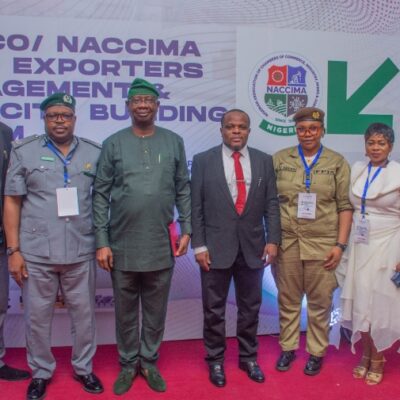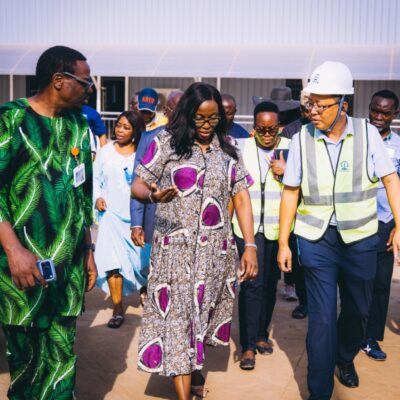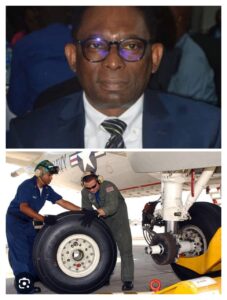
—Capt Olubadewo, MD, AMSL
BY: OLAPEJU OLUBI
Captain David Olubadewo, the Managing Director, Airline Management Support Limited (AMSL) is worried about the weak and vulnerable state of domestic airlines in Nigeria.
According to him, while the local carriers battle a litany of challenges ranging from foreign exchange (forex) scarcity to undulating playing field, the federal government worsens their plights by selling them cheaply on the international scene.
Captain Olubadewo, whose company supports the local airlines in the distribution of Dunlop tyres for aircraft, says there must be a well-designed policy to protect and grow local carriers as it is done in other climes.
His company is also a reseller and distributor for Eastman Turbine oil, which is used for aircraft, among other services.
In this interview, he speaks more about the local carriers and the aviation industry in general.
As a professional in the sector, what do you think are the major challenges confronting the airline sub-sector?
No level playing field, forex, etc. Our government sells Nigerian owned airlines cheap to other countries that own airlines. Government creates unnecessary competition on the routes Nigerian airlines ought to develop in the name of demand and supply. They do not value the domestic airlines, meanwhile we’re about the best in the world.
My advice is that the government should try to build and protect the airlines. Somebody needs to put rules and regulations on ground to protect the airlines that is how it is done globally. Also, they should set up a leasing company to lease aircraft to airlines in Nigeria because we need to grow and build our airlines. This would even be a win-win situation because it boosts both the airlines and the economy as the government gradually recoups the money it spent on the acquisition of the aircraft.
China did the same thing to become the biggest aviation market. Also, the Dubai Government supported Emirates to grow. So, the Nigerian Government should support the local airlines to build them up. For instance, what is the point of foreign airlines coming here and flying to all our major local routes?
Do you think Nigerian airlines are using the right machines (aircraft)?
Yes, based on feasibility studies, just that our airlines cannot really afford brand new aircraft.
Has it become easy for airlines to access spares now looking at forex and other challenges like clearing from customs?
Yes! Spares are issues of planning. There are certain parts that are referred to as urgent or Aircraft on Ground (AOG), those spares will come through Customs. However, it needs following up to let them out quickly rather than creating unnecessary problems.
But, apart from that, I think the customs are not too bad in Nigeria, no matter what you may say, they are not too bad. We go to other West African countries, we see what they do, we see what customs do in the UK, because in the UK you have something called route one. If anything goes through route one you have to wait, you have no choice. It is waiting until it is out. But Nigerian Customs, they are not too bad.
We really want to know the airlines you do supply parts to?
It is third-party information; I don’t think I am allowed to say that.
How is your patronage level?
At least about 90 per cent of all the airlines in Nigeria, we do supply to them.
So you have enough for the sector and all types of aircraft?
Yes, we do and all types of aircraft. Where we don’t have, we have the support of the manufacturer to actually back us up. But remember, this is all based on planning.
Do you think delay in accessing spare could cause flight delays?
Yes, not only in Nigeria, everywhere in the world. It depends on what type of parts we are talking about. If you are talking of engines, of course, if you are going to transport engines from London to Lagos, it takes time. It is a bulky item; it is not something you can carry. It is not something that will go into the AOG desk of the airline.
But these are things which need planning. So, it just depends on one, if it is just an ordinary instrument, of course within 10 hours. It is only six and half hours from the UK and maybe a maximum of 7 hours from anywhere in Europe. And you have maybe 15 or more airlines visiting Nigeria every day.
Do you think it is difficult to access classics?
Airlines fleets, is an airline fleet. It is a decision that has to be made by the owners and those people running the airline. So, while they are doing their feasibility studies, they would have done something about support and if that support is spares, aircraft spares support, now there are many ways of getting around that, you can either lease them, you can either have a programme, you don’t need to keep a large stock. Because part of that is part of your profitability, it adds to it.
There is no point in keeping 100 parts you don’t need in your stock. So, it will depend on what we are talking about, but I don’t see any reason, if the money is there, why should they have any problem.
You said something about planning, but some of the challenges that happen in Nigeria, no matter how well you plan for them, they just happen. Take bird strike for example, an airline has almost eight and they have engines, aircraft, these are things that you don’t plan for. And when something like that happens, you can’t just snap your fingers and these things are done immediately. How do you plan for that?
Yes, you plan for that but you are talking of risk factors. No matter what you do, whatever we do, there is a risk factor. I supply aircraft tyre to airlines and what will happen is that if I put an aircraft tyre on an aircraft and it goes burst that is a risk factor.
So, we have to make sure that the parts or the tyres that are supplied pass through an extra level of quality check to make sure that when it goes on the aircraft, it will do what it is meant to do.
Do you think it is necessary for airlines to keep a huge spare in their stores because you may not need them in the immediate?
We are stockists. For example, we will go into the airline’s store and we will see a small store with small tyres. But don’t forget, they ordered those tyres from us, so we are keeping it for them. Sometimes when you go into the store, you don’t find the parts. But the parts are actually available, they are just elsewhere. Again, we are saving them money.
Do you have a storage facility in Lagos?
Yes, we have two warehouses where we store aircraft parts. We store aircraft tyres for all the airlines.
Olapeju is a journalist and aviation reporter.


